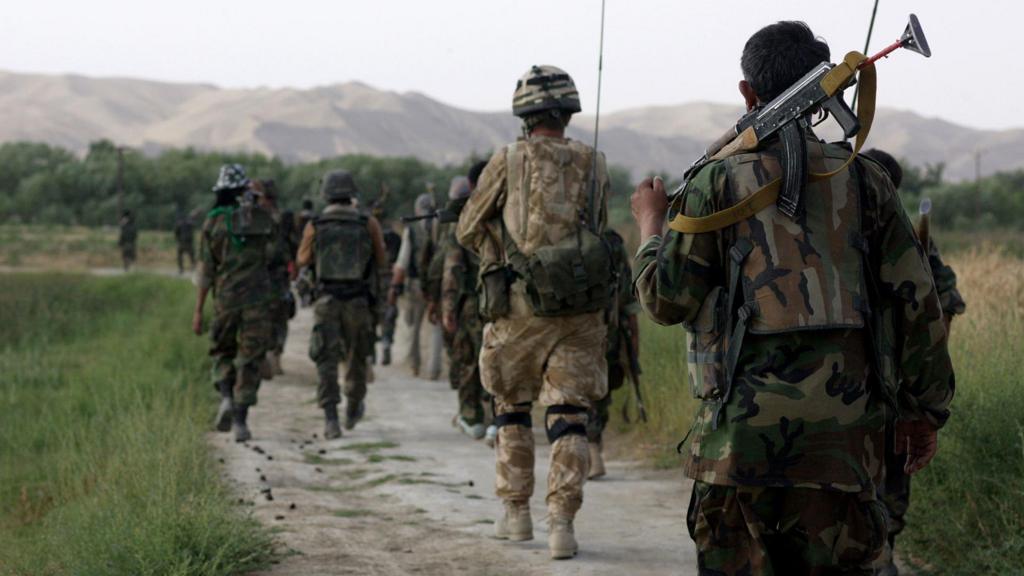Parliament’s intelligence watchdog has announced it will launch an inquiry into a significant data breach that compromised the identities of thousands of Afghans and British military personnel.
The data leak necessitated a super-injunction, which resulted in the Intelligence and Security Committee (ISC), a body that routinely reviews sensitive material, not being briefed until the preceding week.
Lord Beamish, Chairman of the ISC, stated that all intelligence documents pertaining to the case should be provided “immediately” for review.
A spokesperson for the Ministry of Defence (MoD) affirmed that the government welcomes the committee’s scrutiny of the data leak.
The ISC is responsible for overseeing the operations of MI5, MI6, and the Government Communications Headquarters (GCHQ).
In a statement released on Monday, Lord Beamish indicated that the cross-party group would “conduct an inquiry into the intelligence community’s role and activity in connection with the loss of data,” following a review of defence assessments related to the incident.
Lord Beamish had previously expressed concerns regarding “serious constitutional issues” arising from the handling of the breach, which remained undetected for over a year before the request for a gagging order.
The ISC has asserted that, in accordance with the Justice and Security Act 2013, the classification of material does not constitute grounds for withholding information from the committee, given its mandate to scrutinize the activities of the UK intelligence community.
An MoD spokesperson stated, “We recognise the urgent need to understand how these significant failures happened and ensure there’s proper accountability for the previous government’s handling of this matter.”
“The Ministry of Defence has been instructed by the Defence Secretary to provide its full support to the ISC and all parliamentary committees. Incumbent ministers and officials will account and give evidence if requested.”
The data breach occurred in February 2022, when an individual working at UK Special Forces headquarters in London mistakenly emailed a spreadsheet containing over 30,000 resettlement applications to an external recipient, believing it contained data on only 150 individuals.
The breach was not identified until August 2023, when a man in Afghanistan posted on Facebook identifying nine individuals and suggesting he could release further information, in what government sources described as “essentially blackmail.”
In response to the potential risk of Taliban reprisals against nearly 19,000 Afghans identified as having worked with British forces, the MoD applied for a gagging order in September 2023.
The High Court imposed a highly restrictive super-injunction, prohibiting the reporting of the gagging order’s existence until a judge lifted the order last week.
The discovery of the data breach prompted the government to discreetly establish the Afghanistan Response Route (ARR) to facilitate the relocation of approximately 7,000 affected individuals to the UK, with an anticipated final cost of approximately £850 million.
An MoD spokesperson stated that the government would “robustly defend” against any legal action or compensation claims, characterizing them as “hypothetical claims.”
Reports also indicate that the MoD will not proactively offer compensation to those affected.
Sign up for our Politics Essential newsletter to read top political analysis, gain insight from across the UK and stay up to speed with the big moments. It’ll be delivered straight to your inbox every weekday.
The MoD says it will ‘robustly defend’ against large compensation claims from Afghans affected by the data breach, and won’t proactively give payouts
The personal details of spies and soldiers were included in a data leak that also named 19,000 Afghans.
For a case officer in MI6, having your name and details outed in public is potentially a career-killer.
Relatives worry the Taliban may intensify its search for those who worked with the UK in Afghanistan.
Muhammad Khan has been living in the south of England since 2021, with his family now joining him.

